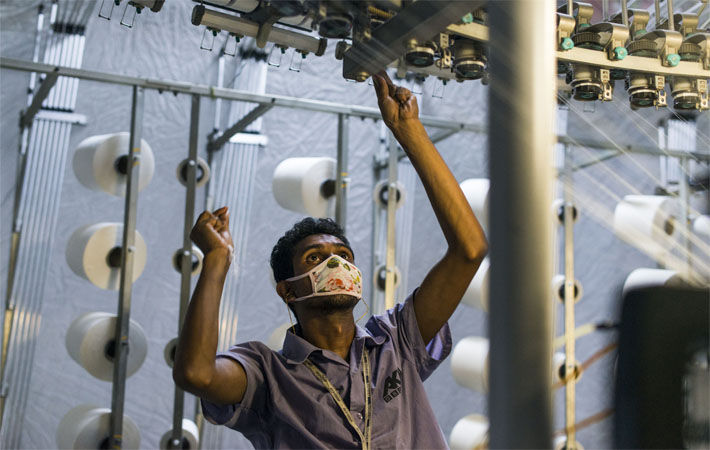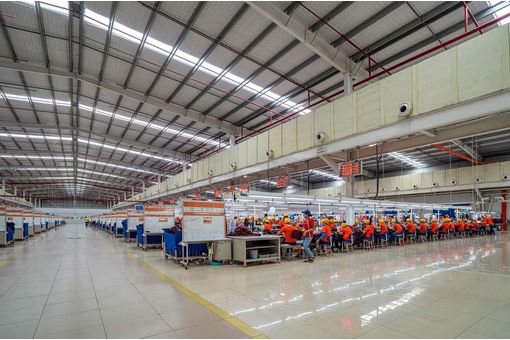Interviews
IFC calls on Bangladesh to reform private sector to realise potential
28 Jun '21
3 min read

Pic: IFC
Bangladesh needs to initiate a fresh round of reforms to strengthen and modernise the private sector for unleashing the country’s potential to drive diversified, export-led growth and create jobs, according to a new report by the International Finance Corporation (IFC) and the World Bank. It is now time to switch gears to transform into an upper middle-income country in the next decade, it said.
The pandemic has hit Bangladesh hard and as the country recovers from Covid-19, the need for reforms will become even more compelling, said Alfonso Garcia Mora, IFC vice president for Asia-Pacific. The Bangladesh Country Private Sector Diagnostic (CPSD) report was released recently.
The report says key priority areas for the reform agenda include creating a favourable trade and investment environment for domestic and foreign investors, modernising and expanding the financial sector and removing impediments for developing infrastructure.
Transport and logistics, energy, financial services, light manufacturing, agri-business, healthcare and pharmaceuticals sectors are among those with the strongest potential for private investment that could play a significant role in boosting economic growth, the report adds.
“The private sector, which already accounts for more than 70 per cent of all investment in Bangladesh, supported by a strong financial sector, will need to play an important role in spurring the recovery so the country can grow, export and create quality jobs,” Garcia said.
Successful development of the readymade garments (RMG) sector, which alone created more than 4 million jobs, along with the strong inflow of remittances, supported by prudent government policy choices, have been the key growth engines of Bangladesh's strong and resilient growth, even during the pandemic outbreak, according to the CPSD report.
“As the world’s second largest exporter, RMG has contributed significantly to Bangladesh’s economic growth,” said Mercy Tembon, World Bank’s country director for Bangladesh and Bhutan.
“For a more resilient, inclusive and sustainable growth, Bangladesh will need to diversify its export basket and develop a robust and sophisticated private sector, relevant in the post–Covid-19 recovery phase when public resources will be needed most in the social sectors,” she said.
Bangladesh could also target high-end markets and introduce new technology in the ready-made garment sector, and seize opportunities in footwear, leather electrical goods, and agribusiness exports, she added.
As the CPSD report points out, challenges persist with more than 40 million Bangladeshis still living below the poverty line, and nearly half the population vulnerable to falling back into poverty.
The findings of the report will be used to craft IFC’s strategic inputs for the World Bank Group’s new Country Partnership Framework with the government of Bangladesh, paving the way for joint programming to create markets and unlock private sector potential.
The pandemic has hit Bangladesh hard and as the country recovers from Covid-19, the need for reforms will become even more compelling, said Alfonso Garcia Mora, IFC vice president for Asia-Pacific. The Bangladesh Country Private Sector Diagnostic (CPSD) report was released recently.
The report says key priority areas for the reform agenda include creating a favourable trade and investment environment for domestic and foreign investors, modernising and expanding the financial sector and removing impediments for developing infrastructure.
Transport and logistics, energy, financial services, light manufacturing, agri-business, healthcare and pharmaceuticals sectors are among those with the strongest potential for private investment that could play a significant role in boosting economic growth, the report adds.
“The private sector, which already accounts for more than 70 per cent of all investment in Bangladesh, supported by a strong financial sector, will need to play an important role in spurring the recovery so the country can grow, export and create quality jobs,” Garcia said.
Successful development of the readymade garments (RMG) sector, which alone created more than 4 million jobs, along with the strong inflow of remittances, supported by prudent government policy choices, have been the key growth engines of Bangladesh's strong and resilient growth, even during the pandemic outbreak, according to the CPSD report.
“As the world’s second largest exporter, RMG has contributed significantly to Bangladesh’s economic growth,” said Mercy Tembon, World Bank’s country director for Bangladesh and Bhutan.
“For a more resilient, inclusive and sustainable growth, Bangladesh will need to diversify its export basket and develop a robust and sophisticated private sector, relevant in the post–Covid-19 recovery phase when public resources will be needed most in the social sectors,” she said.
Bangladesh could also target high-end markets and introduce new technology in the ready-made garment sector, and seize opportunities in footwear, leather electrical goods, and agribusiness exports, she added.
As the CPSD report points out, challenges persist with more than 40 million Bangladeshis still living below the poverty line, and nearly half the population vulnerable to falling back into poverty.
The findings of the report will be used to craft IFC’s strategic inputs for the World Bank Group’s new Country Partnership Framework with the government of Bangladesh, paving the way for joint programming to create markets and unlock private sector potential.
Fibre2Fashion News Desk (DS)
Popular News
Leave your Comments
Editor’s Pick
































-Ltd..jpg?tr=w-120,h-60,c-at_max,cm-pad_resize,bg-ffffff)





.jpg?tr=w-120,h-60,c-at_max,cm-pad_resize,bg-ffffff)
.jpg?tr=w-120,h-60,c-at_max,cm-pad_resize,bg-ffffff)






